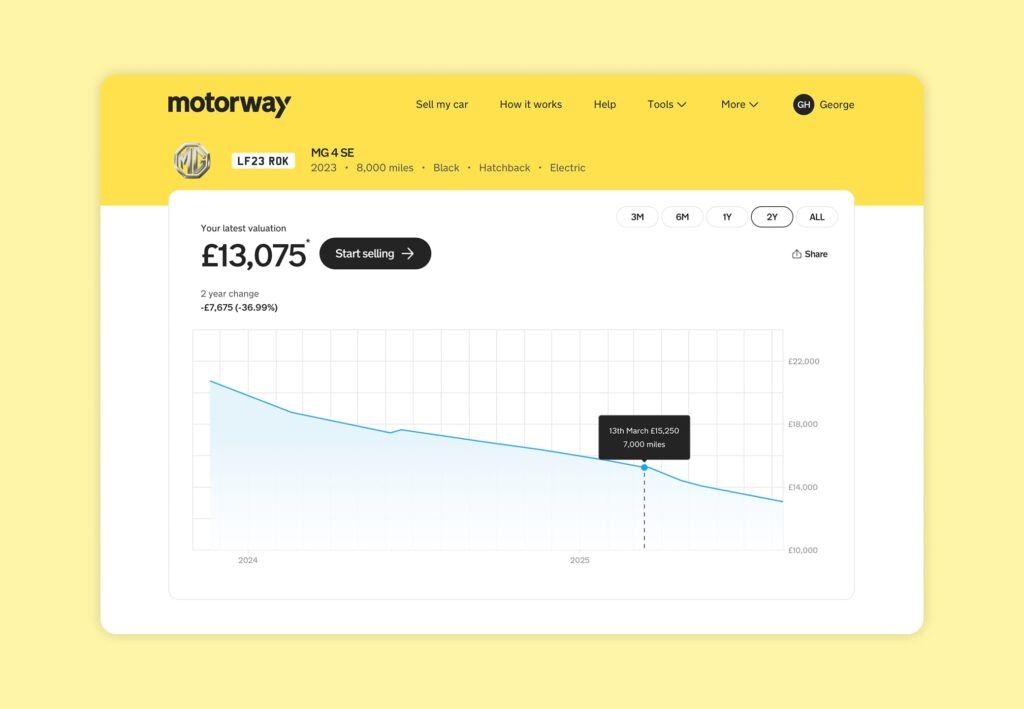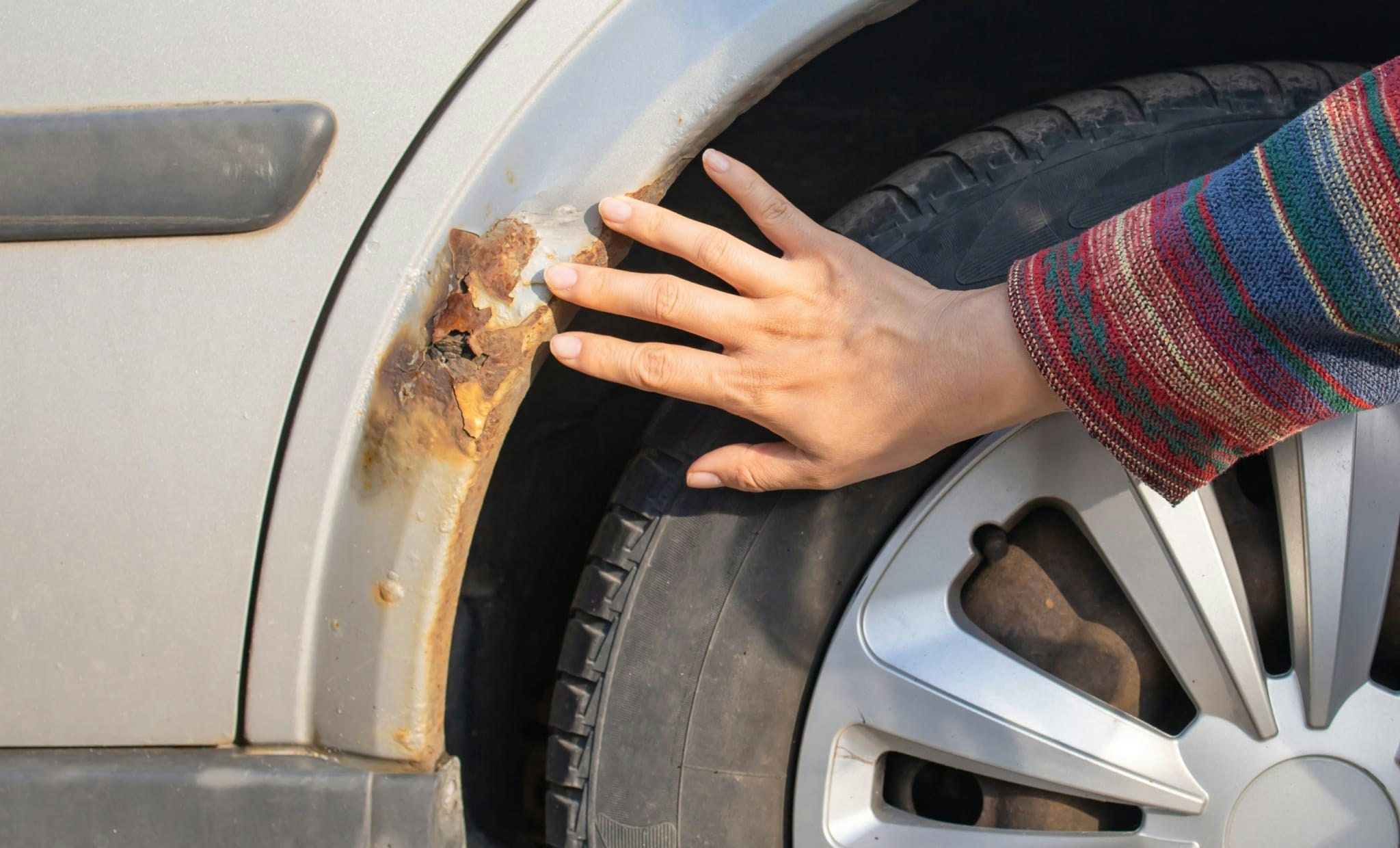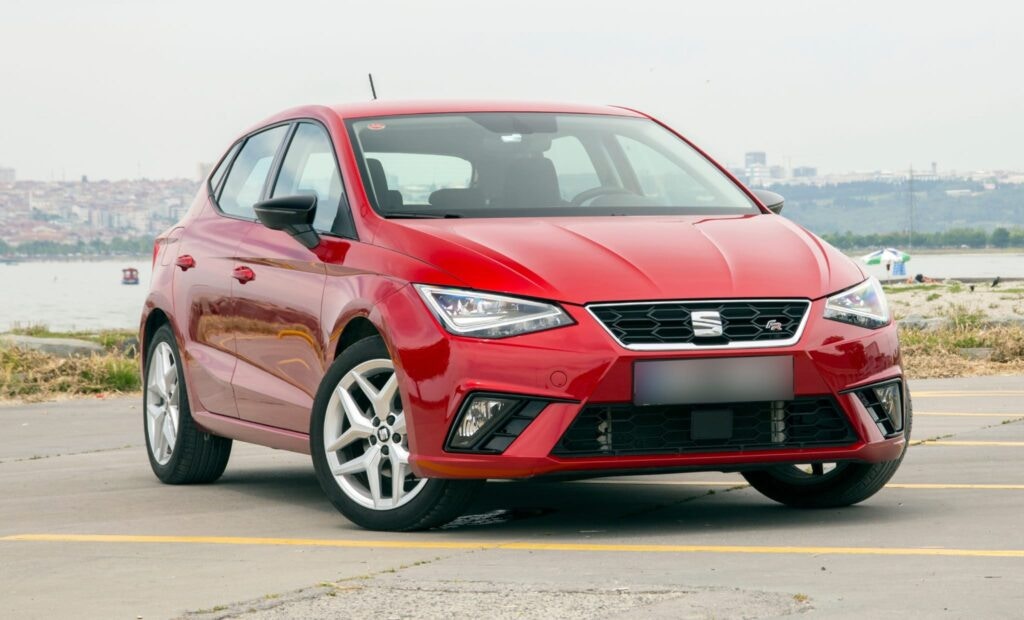Car depreciation – the ultimate guide

Car depreciation explained: How much value does your car lose over time?
Car depreciation means your car loses value over time. Knowing how it works can help you save money when buying, selling, or financing. This simple guide breaks down what depreciation is, why it happens, and how to minimise its impact.
- What is car depreciation?
- Why do cars lose value over time? And how can I reduce car depreciation?
- How much does a car depreciate per year?
- How is car depreciation calculated?
- When does a car depreciate the most?
- FAQs

What is car depreciation?
Car depreciation is the difference between the value of your car when you buy it vs when you sell it. You calculate it by subtracting what your car is worth today from what you originally paid for it.
Why do cars lose value over time? And how can I reduce car depreciation?
While the majority of cars lose value over time, certain habits and choices can either accelerate or slow this process.
| What speeds up depreciation | How to protect your car’s value |
| High mileage The UK average is 8,000–12,000 miles per year, so more miles equate to a lower value and a faster depreciation. | Keep mileage low To keep your mileage closer to the average, consider car sharing, combining trips, or using public transport when possible. |
| Lots of previous owners Having more owners can lead to a higher amount of wear and tear, as well as other issues. | Fewer owners, longer ownership If buying a used car, choose one with fewer owners and keep it for longer yourself. |
| Gaps in service history Missing records can make buyers wary as they can’t see your car’s full history. | Stay on top of servicing Service your car regularly and make sure you keep all records and receipts. For any repairs, make sure you use manufacturer-approved parts. |
| Unreliable reputation Models that are known for breakdowns depreciate faster. | Choose a reliable model Choose a brand with strong reliability ratings and keep on top of repairs. |
| Outdated designs or low desirability Older cars, unpopular models and unpopular colours lose value faster. | Pick popular models and colours Pick a well-reviewed, popular model in a timeless colour e.g. white, black, silver |
| Poor fuel economy Expensive-to-run cars make them less desirable, which can lower their resale value over time. | Drive efficiently Keep your car well-maintained so it runs efficiently and use good driving habits. |
| Poorly looked-after car Neglecting to look after the interior and exterior of your car can lead to a reduction in value. | Look after your car’s appearance Make your car look sharp by washing, waxing and looking after its exterior. Check our guide to washing and waxing your car. And try to keep it smoke and pet-free. |
| The size and cost of your car Luxury cars can be pricey to run, and fewer people are willing to pay for them, which can affect how much you get when selling. | Consider running costs If buying new, think about future resale demand and running costs. |
| High road tax High road tax can put some buyers off, meaning you might need to drop the price to compete with cheaper-to-run cars. | Choose low-tax options Consider a low-emission model to keep tax bills low. |
| Low safety scores or MOT fails Cars that can’t enter low-emission zones will be less attractive to buyers, so you may have to compensate on the price. | Stay MOT ready Stay on top of your MOT and sort problems promptly to keep your car appealing. Get tips in our ultimate MOT guide and check your MOT status on Motorway for free. |
| Failing emission standards Cars that don’t meet emissions rules (e.g. Euro 6 in ULEZ zones) lose value faster. | Meet emissions standards Check emissions before buying and keep your car compliant with local rules. |
How much does a car depreciate per year?
Car depreciation isn’t a one-size-fits-all and can depend on many factors. The biggest depreciation occurs in the first year. After that, the rate slows but continues steadily over time.
| Year | % Depreciation Range | % Value Remaining |
| Year 1 | 15–35% | 65–85% |
| Year 3 | 40–60% | 40–65% |
| Year 5 | 60–70% | 30–40% |
| Year 8–10 | ~80% | ~20% |
How is car depreciation calculated?
To calculate car depreciation:
1. Find the original purchase price of your car.
2. Find the current resale value.
3. Subtract the current value from the original price to get the depreciation amount.
4. To get a percentage, divide the depreciation amount by the original price, then multiply by 100.
Example:
Depreciation percentage: (£5,000 ÷ £20,000) × 100 = 25%
Bought for £20,000, current value £15,000
Depreciation amount: £20,000 – £15,000 = £5,000

When does a car depreciate the most?
The biggest drop in value happens as soon as you drive a new car off the dealer’s forecourt. At that moment, it changes from “new” to “used.” This switch can cut thousands from its value.
The effect is called instant depreciation. In the first year, cars often lose 10–35% of their value. By year three, they can lose up to 60% or more. After that, depreciation slows down.
How do different car types depreciate?
Cars depreciate at different rates depending on their type. Small city cars typically lose value more slowly compared to higher-mileage crossovers and SUVs, which tend to depreciate faster.
Electric vehicles generally hold their value better than most petrol and diesel cars. With this in mind, now could be the perfect time to sell your petrol or diesel vehicle on Motorway. Our network of over 7,500 verified dealers nationwide helps 84% of Motorway customers sell for more than market value

Which cars depreciate the least?
Understanding which cars retain their value can help you make smarter buying and selling decisions.
On Motorway, data from thousands of sales shows that certain models depreciate less over time than others. Here are the top 5 models and how they performed over two years:
| Car Model | Avg Price at 1 Year Old (2022) | Avg Price at 3 Years Old (2024) | Value Lost (2 Years) | % Value Lost |
| Range Rover Evoque | £39,800 | £28,800 | £11,000 | 27.6% |
| BMW 3 Series | £34,000 | £24,500 | £9,500 | 27.9% |
| Mini Cooper | £21,500 | £15,500 | £6,000 | 27.9% |
| Ford Fiesta | £16,750 | £11,250 | £5,500 | 32.8% |
| Vauxhall Corsa | £16,400 | £10,800 | £5,600 | 34.1% |
Popular budget models like the Ford Fiesta and Vauxhall Corsa depreciate faster, losing over 32% of their value in the same period.
The Range Rover Evoque holds its value best, losing just 27.6% over two years despite a high original price.
The BMW 3 Series and Mini Cooper show similar depreciation percentages around 27.9%, reflecting strong demand and reliability.
FAQs
How important is car depreciation when buying or selling?
Depreciation is often the second biggest cost of car ownership after fuel. When buying, understanding depreciation helps you choose a model that holds its value well, saving you money in the long run. When selling, knowing your car’s depreciation rate helps you set realistic expectations and get the best price.
How does depreciation affect car finance or PCP deals?
If your car is on finance or a PCP plan, depreciation directly affects your monthly payments and final balloon payment (p.s. that’s the large sum you can pay at the end of the contract to own the car outright). Faster depreciation means higher costs over time and less equity when the contract ends.
How much is my car worth right now?
Use Motorway’s free Car Value Tracker to get an instant car valuation based on current market data.

Ready to sell your car?
Motorway connects you to over 7,500 verified dealers nationwide, with 84% of customers selling above market value. Want to read more about owning, valuing and selling your car? Check out more of our guides here, covering everything from insuring your car to maintaining its value. Understand your car’s worth in the wider market.
- Car valuation – value your car online with Motorway’s Car Value Tracker
- More cash in the bank when you sell
- How much is your car worth?
- Euro 6 ultimate guide
- Ultimate guide to service history
- Is my car insured? How to check your car has insurance
- What insurance group is my car?
- How to buy or sell a private number plate
- Should you sell a diesel car?
- Should you sell a petrol car?
- Should you sell an electric car?
- Ways to own a car
- Scrap your car
The information provided on this page is for general informational purposes only and should not be considered as professional advice.